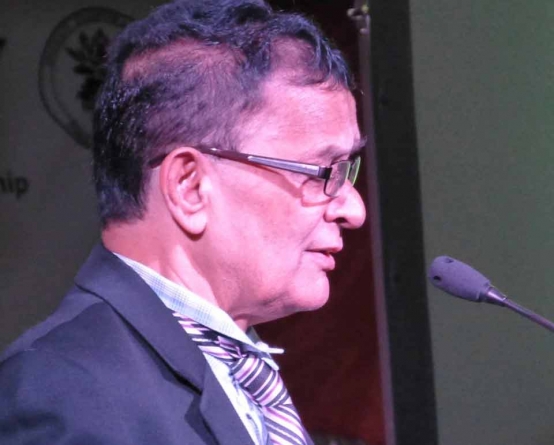Debating a concept that is still ill-defined
BY: DR. TARA SINGH
There are some writers and politicians who are advocating for the implementation of shared governance as a way out of the nagging political crisis that strikes the country at regular intervals. While no one has provided a model of shared governance, other than to indicate that it is probably restricted to executive power sharing, the debate continues over this nebulous concept.
A politician of one of the new political parties, always claim that the political mess in Guyana is attributed to the winner-takes-all (WTA) system. He does not explain why, in other democracies in the Caribbean and elsewhere, the WTA system does not necessarily lead to political crisis. What leads to the mess is that politicians deviate and depart from ethics, morality and rules. What may be more important for the electoral system is to first seek an attitudinal transformation set in motion by re-educating politicians and others on the craft of effective governance.
Even if we expand the shared governance concept (beyond cabinet) to embrace all levels of the government apparatus, there is no evidence to show that this system will be better than WTA. The current ill-defined theoretical construct of shared governance has to be refined through research and analytic rigour. It’s hard to understand how anyone could engage in a subject when there is no agreement on its definition.
I am not averse to any new idea or model to replace existing ones; but caution that these must be properly investigated before any decision is made on its possible viability. Currently, the shared governance debate is dominated by political polemics and platitudes. How many democracies across the world, are blessed with shared governance even in the limited sense described in this letter? None! The main argument for shared governance is not any perceived intrinsic strength that it may possess, but rather the perceived weakness of WTA.
There are a number of questions that we should seek to answer as part of the research process. Some of these are listed here.
1. Can anyone say which democracy in the world has a system of shared governance?
2. Can anyone show that shared governance is better than winner takes all?
3. Isn’t it true that in any democracy, usually one party or on rare cases a coalition wins and the other(s) lose?
4. Does losing mean,that the losing party necessarily has no say in governance?
5. Does the winning party govern only for themselves or for all parties and groups?
6. If there is discrimination of any kind, why does anyone think that this could be cured by shared governance?
7. Wouldn’t the requirement of an ethnic impact statement (EIS) be able to address the problem of racial discrimination?
8. In an election, each party has a manifesto. Why, if a party wins an election based on its manifesto, shouldn’t it be allowed to translate manifesto promises into law?
9. Isn’t the election in a democracy about competition of ideas and ideology?
10. Isn’t it true that electoral competition is not based on race alone but also on other factors as well?
11. Isn’t it true that every party has a support base grounded in race, religion, idelogy, or tribe? Does this necessarily mean that they are wholly in-group centric?
If we secure credible answers to these questions and they point towards a system of shared governance, then these could be consolidated into a model and become part of constitutional reform. Otherwise we have to look at alternative solutions such as a federal-type system proposed by Ravi Dev.






















